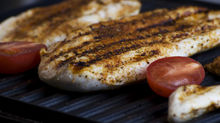What you need to know about consumption of beverages with low calorie sweeteners and Type 2 Diabetes
- Oganya Anita Udenyi
- Nov 25, 2020
- 2 min read
Low-calorie sweeteners such as aspartame, sucralose, neotame, saccharin, stevia are some common names we find on the nutrition facts label of beverages. Often times, when grabbing a lunch, accompanied by lunch usually is a low-calorie sweetened beverage (LCSB) typically a soft drink, sweetened carbonated water or a sweetened fruit flavored drink.
On a typical day, as one works on the day’s projects usually at break time, these sugar sweetened beverages (SSBs) such as bottled sodas, fruits drinks, sport drinks, sweetened tea or coffee is top of the mind.

Source: Pexels-julien-bachelet photos
A review into current research showed that replacement of added sugars with low calorie sweeteners, lowers total energy intake and reduces body weight. The results of some other studies showed that adults who consumed low calorie sweetened beverages when compared with consumers of sugar sweetened beverages reported higher discretionary calorie intake, more snack and food purchases, and a higher energy intake. Other interesting outcomes from an evidence-based research showed that consumers of low-calorie sweetened beverages demonstrated reduced intake of saturated fats and paid greater attention to nutrition labels.
Is there as association with intake of low-calorie sweetened beverage and quality of diet as it relates to weight and heart health?
Research scientists in recent studies employed the use of a modified food frequency questionnaire, which is a standard instrument used to obtain relevant information. The purpose of the investigation was to find out consumer’s behaviors of low-calorie sweetened beverages and sugar sweetened beverages and their association to weight and heart health. Useful parameters such as weight, height, BMI, blood pressure, fasting blood glucose, glycated hemoglobin, the density lipoproteins triglycerides and total cholesterol was obtained at baseline and at the end of a twenty-four months cross-sectional observational study.
The findings were categorized as follows. Consumers of high LCSB demonstrated a higher intake of energy, fiber, carbohydrates, total fat, saturated fat and protein intake compared to non-consumers. Adults who consumed medium LCSB showed similar trends for energy, fiber, and total fat intake compared to non-consumers. The study outcomes demonstrate that consumption of LCSB may be associated with higher energy intake especially among adults with type 2 diabetes. In terms of heart health, changes in LCSB intake did not affect changes in any cardio metabolic risk factors between baseline and follow -up at twenty four months.
The American Heart Association (AHA) recommends limiting the intake of added sugars to the equivalent of no more than 100 calories (25g) per day in women and 150 calories (37.5g) per day in men which is equivalent to six teaspoons (two tablespoons) and nine teaspoons (three tablespoons) respectively.
For more information on this topic, the publication on Academy of Nutrition and Dietetics titled "Consumption of beverages containing low calorie sweeteners, diet and cardio metabolic health in youth with type 2 diabetes" written by Sylvetsky et al is a great resource.














































Comments